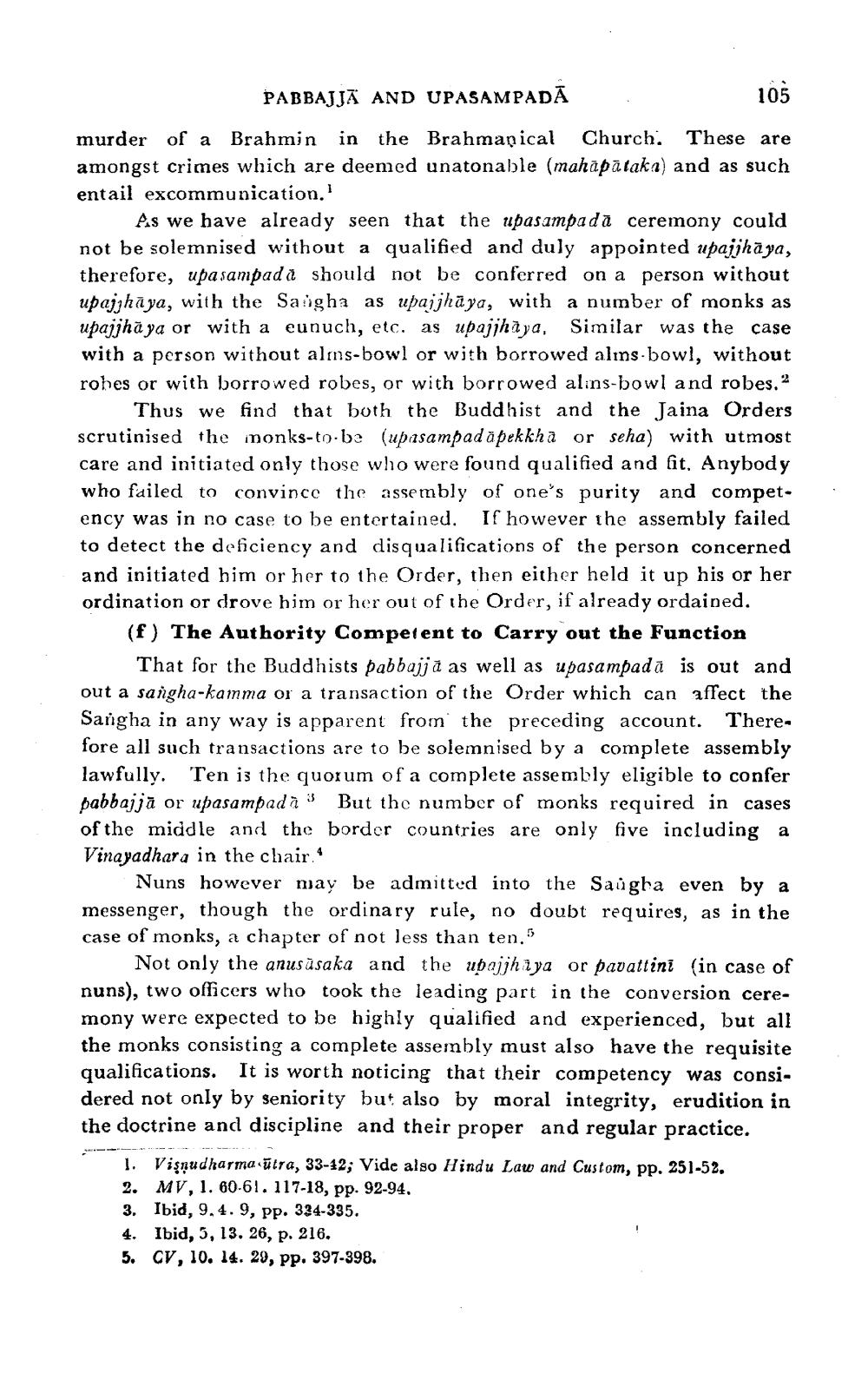________________
PABBAJJA AND UPASAMPADĀ
105
murder of a Brahmin in the Brahmaņical Church. These are amongst crimes which are deemed unatonable (mahāpātaka) and as such entail excommunication.1
As we have already seen that the upasampada ceremony could not be solemnised without a qualified and duly appointed upajjhāya, therefore, upasampadă should not be conferred on a person without upajjhaya, with the Sangha as upajjhaya, with a number of monks as upajjhaya or with a eunuch, etc. as upajjhaya, Similar was the case with a person without alms-bowl or with borrowed alms-bowl, without robes or with borrowed robes, or with borrowed alins-bowl and robes.'
2
Thus we find that both the Buddhist and the Jaina Orders scrutinised the monks-to-be (upasampadāpekkha or seha) with utmost care and initiated only those who were found qualified and fit. Anybody who failed to convince the assembly of one's purity and competency was in no case to be entertained. If however the assembly failed to detect the deficiency and disqualifications of the person concerned and initiated him or her to the Order, then either held it up his or her ordination or drove him or her out of the Order, if already ordained.
(f) The Authority Competent to Carry out the Function
That for the Buddhists pabbajja as well as upasampada is out and out a sangha-kamma or a transaction of the Order which can affect the Sangha in any way is apparent from the preceding account. Therefore all such transactions are to be solemnised by a complete assembly lawfully. Ten is the quorum of a complete assembly eligible to confer pabbajja or upasampada But the number of monks required in cases of the middle and the border countries are only five including a Vinayadhara in the chair."
Nuns however may be admitted into the Saugha even by a messenger, though the ordinary rule, no doubt requires, as in the case of monks, a chapter of not less than ten."
Not only the anusasaka and the ubajjhaya or pavattini (in case of nuns), two officers who took the leading part in the conversion ceremony were expected to be highly qualified and experienced, but all the monks consisting a complete assembly must also have the requisite qualifications. It is worth noticing that their competency was considered not only by seniority but also by moral integrity, erudition in the doctrine and discipline and their proper and regular practice.
1. Visnudharma sutra, 33-12; Vide also Hindu Law and Custom, pp. 251-52. 2. MV, 1. 60-61. 117-18, pp. 92-94.
3. Ibid, 9.4. 9, pp. 324-335.
4. Ibid, 5, 13. 26, p. 216.
5. CV, 10. 14. 29, pp. 397-398.




